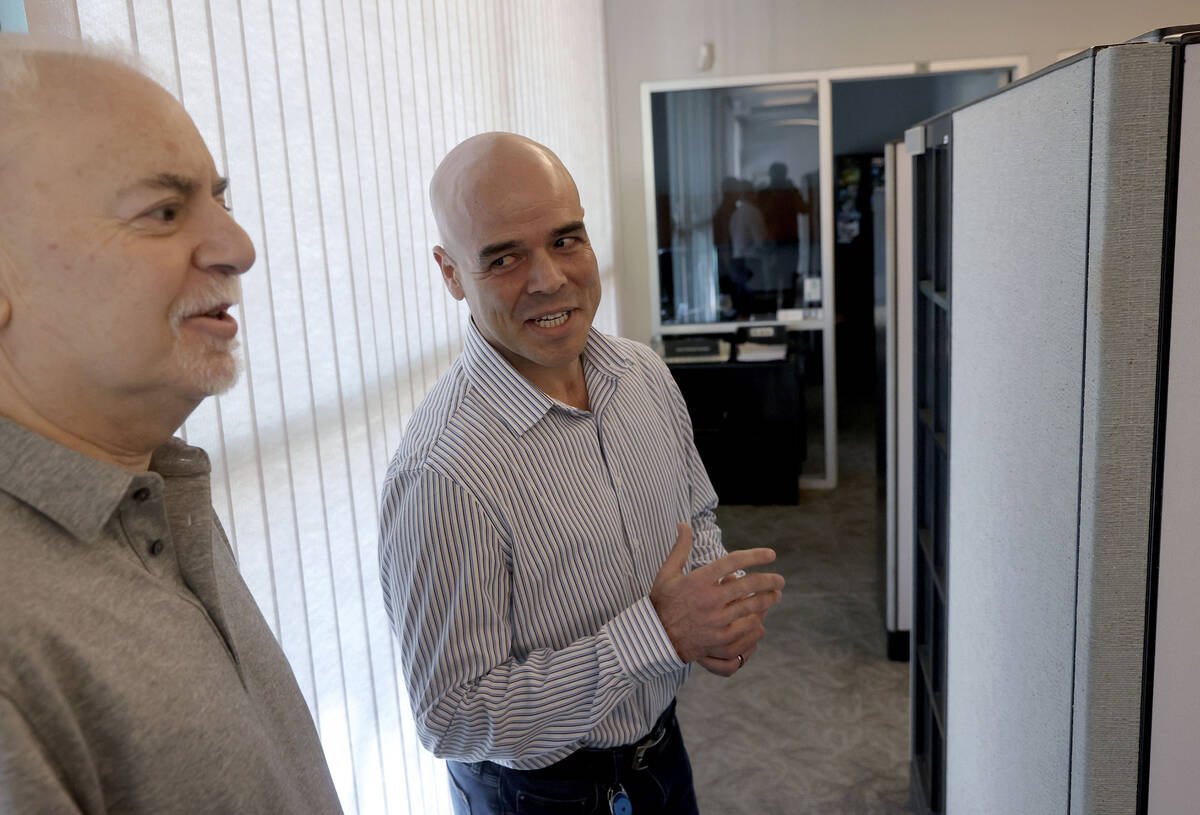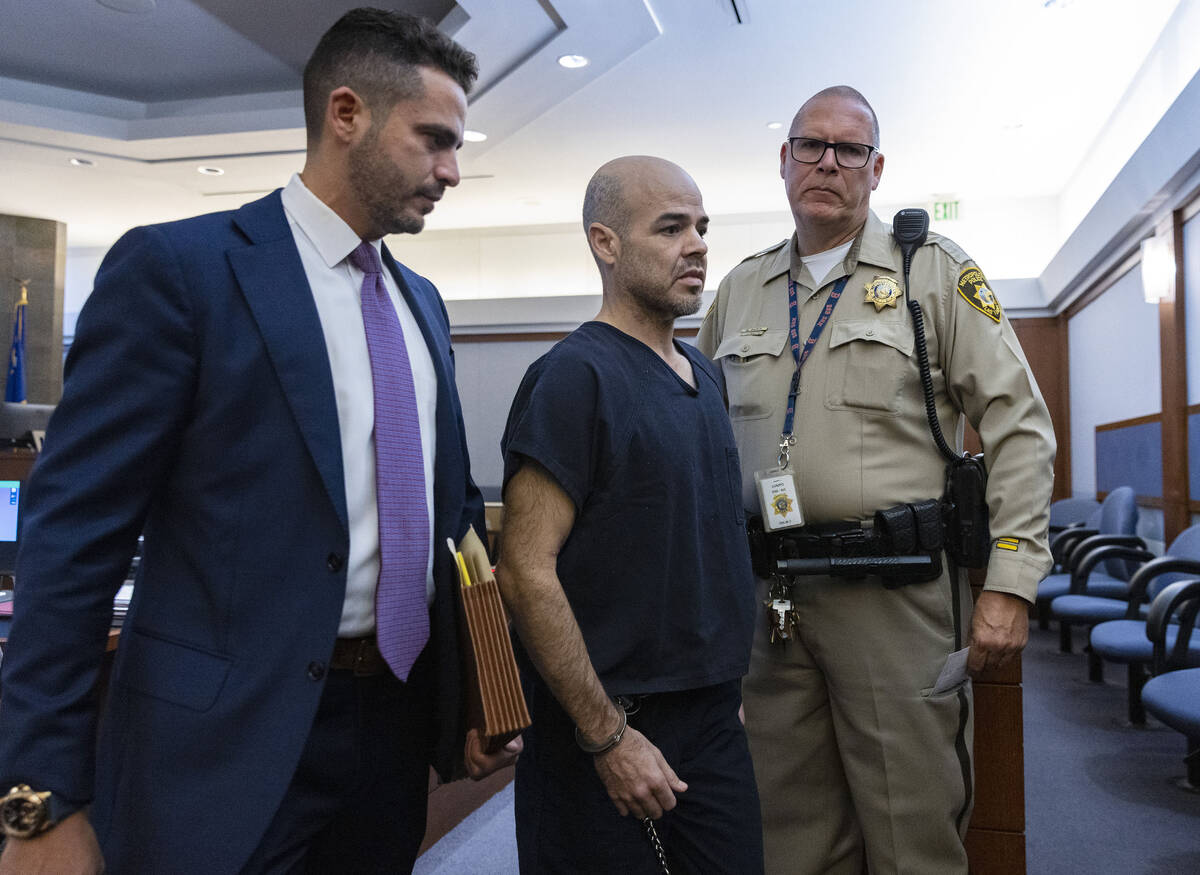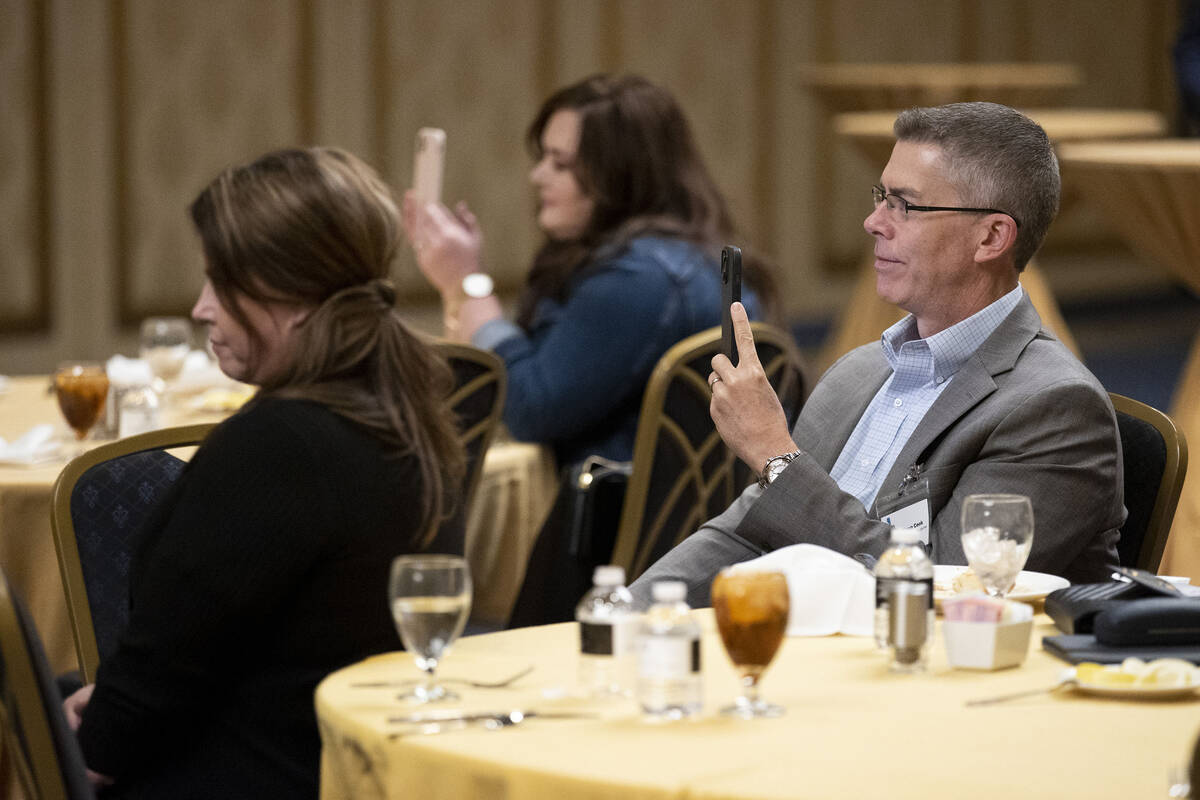RJ asks court to block government review of slain reporter’s devices
The Las Vegas Review-Journal on Monday asked a judge to stop authorities from accessing slain investigative reporter Jeff German’s cellphone and computers, and instead allow the news organization to lead a cooperative review that protects the identities of German’s confidential sources.
German, 69, was found dead of stab wounds earlier this month outside his Las Vegas home, where he had produced much of his work the past 2½ years, including stories about a public official now charged in the killing.
Police seized personal electronic devices that the news organization believes he used for work, including a cellphone, computers and a hard drive. Prosecutors and the public defender’s office now want to search those devices for information that could relate to the criminal case.
Glenn Cook, the Review-Journal’s executive editor, wrote in an affidavit that the devices could contain unpublished story drafts, along with emails, text messages and other communications German had with sources that should be considered privileged.
Cook called allowing police access to the devices “uniquely dangerous,” saying that German relied on confidential sources inside the judicial system, the Metropolitan Police Department, the Clark County district attorney’s office and the public defender’s office, which represents Clark County Public Administrator Robert Telles in the murder case.
“If Mr. German’s sources are disclosed to anyone, but particularly to people within these very agencies, these individuals could face retaliation and lifelong career damage,” Cook wrote. “The Review-Journal could also lose access to these important sources, and to future sources who may not come forward due to the risk that their identities could be revealed. The Review-Journal will be severely hamstrung in its ability to report on newsworthy events, particularly government misconduct, if it cannot ensure the absolute confidentiality of its sources and unpublished information.”
Cook said Monday that the Review-Journal is not trying to damage the prosecution’s case or trample Telles’ constitutional rights.
“To the contrary, the RJ wants justice and wants to help,” Cook said. “But the Review-Journal and Jeff German have important rights under the law that must be protected, as well, and the RJ must have a lead role in ensuring that the most sensitive information on these devices is not seen by authorities.”
Clark County District Attorney Steve Wolfson said there are competing interests between the newspaper, prosecutors and defense attorneys, and that “the state and the defense are most interested in protecting the integrity of the criminal case.”
“It is appropriate for a court to entertain the requests of the parties so the court can hopefully fashion a remedy that is satisfactory to all concerned,” Wolfson said.
Edward Kane, Telles’ public defender, did not reply to a request for comment.
‘Serious and urgent concerns’
Police arrested Telles in connection with German’s death, and prosecutors later said the killing was “perpetrated by lying in wait.”
The newspaper’s lawyers, Ashley Kissinger, Joel Tasca and Kennison Lay, pointed to “serious and urgent concerns” about protecting confidential sources and unpublished work, which is prohibited from disclosure as reporter’s privilege, citing the First Amendment, the state’s shield law, which provides the press absolute privilege from disclosing newsgathering material, and the federal Privacy Protection Act.
The Review-Journal argued that German’s devices never should have been seized by Metro, and the company is seeking a protective order from a judge that would establish a protocol and appoint a special master from outside Las Vegas to determine whether any of the information on German’s devices should be disclosed.
“No party’s interest in reviewing the information on the Seized Devices outweighs the press’s strong constitutional and statutory privilege to maintain the confidentiality of this information,” the lawyers wrote.
Earlier this month, Metro police told the newspaper in writing that “no search has commenced” and “there is no intent to conduct any search until a protocol can be approved by the judge.” Prosecutors also have agreed that they would not seek to review any newsgathering material without a judge’s permission.
German left his work-issued computer at the newspaper’s offices in March 2020 amid pandemic closures, and he used other electronic devices while working remotely, Cook said.
Prosecutors have suggested that the devices could contain threats Telles made to German, but “provided no factual basis for this speculation,” the newspaper’s lawyers wrote.
Speaking to reporters after one of Telles’ initial court hearings, Wolfson called the evidence against the defendant “compelling.”
Review-Journal attorneys also argued that Telles could not show that any information on the devices would help his defense.
Telles’ lawyer has suggested that the devices could contain evidence of threats against German or evidence that others may have been motivated to harm him, according to Monday’s filing.
“The State can point to Mr. German’s extensive, unflattering reporting about the Defendant as providing a motive for the homicide,” the Review-Journal attorneys wrote. “And the Defendant can point to all of the other subjects of Mr. German’s reporting over the course of his career who may be upset by his reports of their misconduct and would have a similar motive to harm him.”
Protection of confidential sources
Telles, 45, was arrested in connection with German’s death after his killer was captured on video surveillance approaching his house.
German was found with seven sharp-force injuries to his torso, along with wounds to his arms and hands that appeared defensive, according to Telles’ arrest report. Telles’ DNA was consistent with DNA found under German’s fingernails, officials have said.
Earlier this year, German reported a series of investigative stories about Telles’ workplace conduct. German was working on a potential follow-up story in the weeks before his death.
After learning that the journalist’s devices had been seized in the investigation, the newspaper advised police and prosecutors that the information on them was subject to legal protections.
In a Friday letter to prosecutors, Metro and the public defender’s office, the newspaper’s lawyers had asked to resolve the dispute over the electronic devices “amicably” before filing the motion.
While the newspaper received no immediate response to the letter, Review-Journal attorneys wrote that police and prosecutors have “engaged in an ongoing, good faith effort to resolve these issues out of court.”
Cook said German relied on confidential sources to back up his reporting.
“Given the alleged actions of the Defendant in this case, a public official who is charged with going so far as to murder the author of negative reports about him, this concern for the Review-Journal’s sources should not be underestimated,” the paper’s attorneys wrote.
In a corresponding affidavit included in Monday’s filing, attorney Brian Berman said information he provided to German for another story could be found on the devices.
Berman represents a Las Vegas junior high school teacher who said she was retaliated against after reporting alleged strip searches of students.
German wrote two stories about the controversy.
Berman said he provided information to German that he “expressly agreed not to publish,” though Berman observed the reporter taking notes on his computer.
“I am concerned that, if the confidential information that I provided to Mr. German is revealed to the government, it could result in further retaliation and harm to my client,” Berman wrote. “I am concerned that the information might fall into the hands of someone with an axe to grind against the Review-Journal who would expose it out of spite. … For these reasons, had I known that my confidential communications with Mr. German would end up in the hands of others, I would have chosen not to make them.”
Contact David Ferrara at dferrara@reviewjournal.com or 702-383-0394. Follow @randompoker on Twitter. Review-Journal staff writer Katelyn Newberg contributed to this report.






























